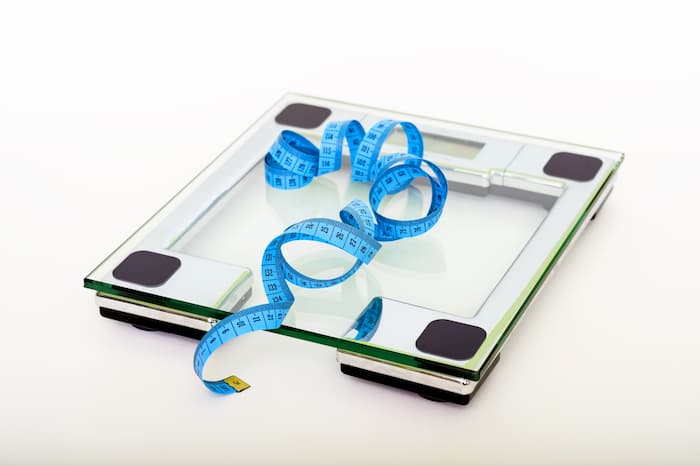
Categories
Weight Loss vs Fat Loss
It’s traditionally busy times in gym-land over the coming weeks, the clocks have changed which means summer is (reluctantly) on it’s way and people now have an eye on summer and the prospect of having to get semi-naked in public.
The talk across the gym floor will be weight loss, or is it fat loss?
We probably do need to make the distinction, because whilst weight loss is relatively easy fat loss is a different proposition.
There’s a discernible difference between temporary weight loss and permanent fat loss.
Weight loss is actually pretty easy to achieve (manipulate). Ask any boxer who’s had to make weight, losing and re-gaining several kilos in as little as twenty-four hours.
Same goes for most women during their cycle, weight fluctuates – perhaps not to the extremes of our boxers, but 2-3kgs is not uncommon.
In both of these cases, it has little to do with losing or gaining fat.
Ever been on a low/no carb ketogenic type of diet where you’ve dropped five to ten pounds in as many days by cutting out carbohydrates, only to regain the weight back is soon as you get back on the your regular diet?
Likewise, Why?
Pretty simple: you stripped the body of glycogen and the accompanying water and hence lost weight. You then ate carbs, replenished glycogen and regained the necessary water.
Sure you probably dropped a bit of fat as a result of cutting out some of the crap etcetera, but you lost weight, not fat.
Using weight as the sole marker of progression is a one way ticket to frustrationville.
Too many people are fixated with their weight. Perhaps understandably so given that in most cases weight is the marker used to measure body composition, but it shouldn’t be used as a standalone measure of progress.
Sure, you probably associate a certain weight with when you were looking your best, and that probably does have some relevance, but you need to switch your thinking away from weight, and towards fat loss and improved body composition.
How much you weigh is less important than what your weight is made up of (fat, muscle, water, other lean tissue), or your body composition.
By body composition we’re essentially referring to the relationship between total bodyweight, muscle mass (total lean mass) and fat mass.
Lets say you weigh 65kg for example, with 25kg of that weight being muscle mass and 15kg of fat mass. You go on a ‘diet’ and lose 10kg of total weight, all of which is fat, happy days.
But, what if you lost say 4kg of fat and 6kg of lean mass?
You did lose some fat, but you also lost a significant amount of lean mass. Not good long term. This second scenario is the reality of what happens with diets.
You lose lots of weight, but relatively little body fat.
And what happens when you return to your regular way of eating and drinking?
Well, being that you can only shrink fat cells – your body has a kind of ‘fat memory’ and remembers with fondness those fatter times – your are likely to regain most, if not all, of that fat. Oh, and that lean mass you lost?
Unfortunately, that’s not quite so accommodating, you need to earn that back.
But, focus on improving your body composition – that is losing fat and maintain or better still adding some muscle (lean mass) and you’ll look and feel very different, both acutely and in the longer term.
The example below show’s just this.
This person has only lost 2kg of total weight, but has lost 8.4kg of fat and added 4.2kg of muscle. So whilst 2kg (broadly 4lbs) of weight loss is nothing of particular note, the change in body composition is hugely significant.
The change in the shape of the curve from C-shaped to D-shaped. A D-shaped curve indicates a positive relationship between fat and muscle relative to weight.
Focus on fat loss, not weight loss.
It will seem like you’re progressing more slowly (your weight won’t drop so quickly, especially if you add some lean mass), but surely it’s better to get leaner rather than simply smaller?
FAQs
Q: What’s the difference between weight loss and fat loss?
Weight loss refers to a decrease in body weight, while fat loss refers to a reduction in body fat percentage. Losing weight can include losing water weight, muscle, and fat while losing fat means losing fat while maintaining muscle mass.
Q: Why is it important to focus on fat loss instead of just weight loss?
Focusing on weight loss instead of just weight loss is important because losing weight without reducing body fat can decrease muscle mass, which can adversely affect health and metabolic rate. Additionally, losing fat can lead to a more toned and defined physique.
Q: How can I ensure I’m losing fat and not muscle?
To ensure you’re losing fat and not muscle, it’s important to incorporate strength training into your exercise routine and eat a protein-rich diet. Additionally, monitoring body fat percentage instead of just body weight can help you track progress.
Q: Can you lose weight without losing fat?
Yes, losing weight without losing fat by losing water or muscle mass instead of fat is possible. This can happen if you’re not consuming enough calories, not getting enough protein, or not engaging in strength training.
Q: What are some effective strategies for losing fat?
Practical strategies for losing fat include eating a balanced diet high in protein and fibre, regular strength training and cardio exercise, and monitoring calorie intake and portion sizes.
Q: Is it possible to lose fat in specific body areas?
While it’s impossible to target fat loss in specific areas of the body, engaging in strength training and cardio exercise can help reduce overall body fat percentage, resulting in a more toned and defined physique.
Q: How long does it take to lose fat?
The time it takes to lose fat depends on factors such as starting body fat percentage, exercise routine, and diet. Generally, it’s recommended to aim for a healthy rate of weight loss of 1-2 pounds per week.
Q: What are some common misconceptions about weight loss and fat loss?
Common misconceptions about weight loss and fat loss include thinking that losing weight means losing fat, that focusing on cardio is the best way to lose fat, and that certain foods or supplements can target fat loss in specific areas of the body.
We help our members with a nutritional programme that works for them, if you’re struggling, give us a shout at our personal training gym in Bank or try out our training sessions and we’ll help you work out a plan that suits you.
Related Articles
- Weight Loss – What You Need to Know
- Working Out, Eating Well But not Losing Weight?
- Meal Prep for Fat Loss
- Fat Loss – The Most Important Factor
- 4 Ways you Should Be Measuring Fat Loss Results


